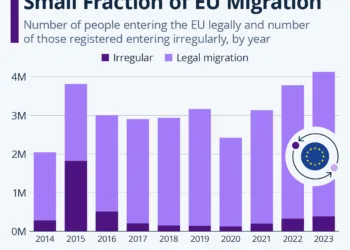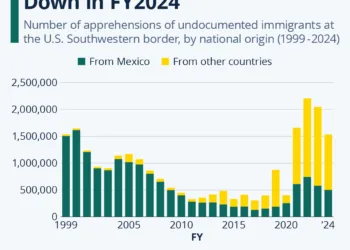The Rise of the World’s Most Valuable Unicorns
Understanding Unicorns in the Business World
The term "unicorn" refers to privately-held companies that are valued at over $1 billion. These firms are often at the forefront of innovation, creating technologies or services that capture the market’s imagination. As of now, there are approximately 1,200 unicorns worldwide, according to CB Insights, with CrunchBase identifying an even higher number of 1,549. This includes notable giants such as Ant Group and Reliance Industries, which complicates the classification based on market performance and funding.
ByteDance: The Leader in Valuation
At the pinnacle of this select group is ByteDance, the Chinese parent company of TikTok, boasting a staggering valuation of $225 billion. This valuation positions ByteDance as not just the most valuable unicorn globally but also reflects its significant role in shaping content consumption patterns around the world.
The Emergence of SpaceX and OpenAI
Following ByteDance, we see two heavyweights in their respective fields: SpaceX and OpenAI. SpaceX, spearheaded by Elon Musk, is valued at $200 billion, a testament to its groundbreaking achievements in aerospace technology. Meanwhile, OpenAI has experienced remarkable growth, recently achieving a valuation of $157 billion. The AI company’s financial trajectory has been impressive, raising $6.6 billion in fresh funding, which almost doubled its previous valuation of $80 billion.
Additional Key Players in the Unicorn Landscape
Beyond these tech giants, the unicorn landscape is populated with firms across various sectors:
-
Apparel: Companies like Shein and Fanatics are reshaping retail through unique business models that leverage e-commerce.
-
Fintech: The fintech sector boasts unicorns such as Stripe and Revolut, both of which are revolutionizing financial services and payment solutions.
- Software: Databricks, specializing in big data and AI solutions, is another significant player making headlines in the software sector.
OpenAI’s Expansion into Generative AI
While ByteDance leads in overall valuation, it’s worth noting that the company is also venturing into generative artificial intelligence. In May, ByteDance launched a suite of large language models called Doubao, mirroring trends set by Western counterparts like Meta and Alphabet. This strategic shift aims to further solidify ByteDance’s standing in the competitive tech landscape, particularly in AI.
Valuation Dynamics and Market Trends
The valuation dynamics of these unicorns are not static. OpenAI is experiencing rapid growth not just in valuation but also in revenue. Recent reports indicate that the company’s annualized revenue surged to $3.4 billion between late 2023 and mid-2024, underlining the strong demand for generative AI services.
The Unicorn Controversy: Classification and Funding
The classification of companies as unicorns can spark debate. The exclusion of certain companies, like Ant Group, from the unicorn list by CB Insights raises questions about the criteria used for such classifications. While these firms may not be publicly traded, they operate under parent corporations that are, complicating their categorization.
Moreover, the term "startup" often associated with unicorns may not fit larger entities like SpaceX, ByteDance, or OpenAI, which have moved beyond the initial stages of development and are no longer heavily reliant on external funding.
Conclusion: A Transformative Era for Unicorns
The unicorn landscape is ever-evolving, with market dynamics shifting and new players emerging regularly. The financial trajectories of companies like ByteDance, SpaceX, and OpenAI indicate a vibrant ecosystem that continues to redefine what it means to be a leading innovator in today’s global economy.
In the coming years, the performance and development of these unicorn companies will be crucial to watch as they adapt to changing market demands and technological advancements.










